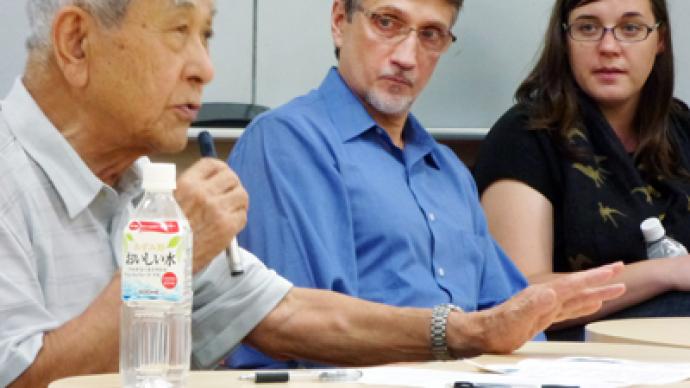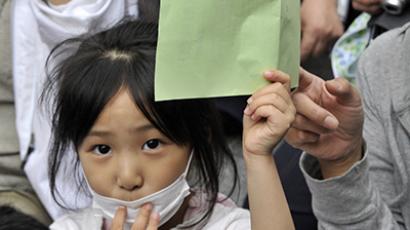Truman’s grandson unapologetic for WWII US nuke bombing of Japan

The grandson of former US President Harry Truman, who ordered the use of nuclear weapons against Japan during World War II, has met with survivors in Tokyo. But his visit isn’t exactly filled with apologies.
The visit was “a good first step to healing old wounds," Clifton Truman Daniel told AFP. He was unapologetic, however, for the actions his grandfather ordered nearly seven decades ago. “I can't second-guess my grandfather. He always said that he made that decision to end the war quickly. That's what he believed,” he said.Daniel told the Japan Times that he is frequently thanked by WWII veterans, who say his grandfather’s decision saved the lives of servicemen. His visit coincides with a ceremony commemorating the 67th anniversary of the bombings of Hiroshima and Nagasaki, the first and last wartime use of the weapons of mass destruction. Daniel is the first relative of President Truman to attend the ceremony.“I certainly can feel terrible for what happened to them. It's obviously a difficult subject,” Daniel said when asked whether he planned to publicly apologize or offer condolences to the victims of the bombings. Daniels was inspired to make the trip when his son brought home a book on the famous story of Sadako Sasaki, a girl who died from cancer caused by radiation from the Hiroshima bombing, he said. Nearly 20 percent of the victims of the Hiroshima bombing died from radiation sickness.In the book “Sadako and the Thousand Paper Cranes,” the young girl folds origami paper cranes in the hopes that it will make her wish for recovery come true.“When my son brought home that book I remember thinking… This is a good thing for them to read… They should know the consequences of decisions,” he told the Japan Times. After learning how Sadako’s story touched Daniel, the girl’s brother, Masahiro Sasaki, invited him to Hiroshima.“I am being thanked on my grandfather’s behalf for saving lives, yet I can hold the last paper crane ever made by a little girl who lost her life because of that,” he said of the conflicting emotions he feels regarding the bombing.
A quick end to war, or unnecessary devastation?Under Truman’s orders, American pilots dropped ‘Little Boy’ on Hiroshima on August 6, 1945. The bombing resulted in the deaths of some 166,000 people. Truman then ordered the US Air Force to drop ‘Fat Man’ over Nagasaki on August 9, killing an additional 60,000 to 80,000 civilians.Considerable controversy remains over whether the use of atomic bombs was necessary to end the war. Daniel withholds judgment on the matter, he said.“My grandfather was horrified by the destruction caused by those weapons and dedicated the rest of his presidency trying to make sure that it didn't happen again. I hope that I can do the same, to work to hopefully rid the world of nuclear weapons,” he said to AFP.Contrary to Daniel's statement, publicly available papers from Truman’s presidency indicate he had no regrets about using nuclear weapons against the largely civilian populations of Hiroshima and Nagasaki.And Daniel didn’t receive a universally warm reception at the ceremony.“I would like him to know that some of those who lost their family members in the bombings will never forgive [the United States] no matter what," Reiko Yamada, a 77-year-old survivor of the bombings told AFP.













